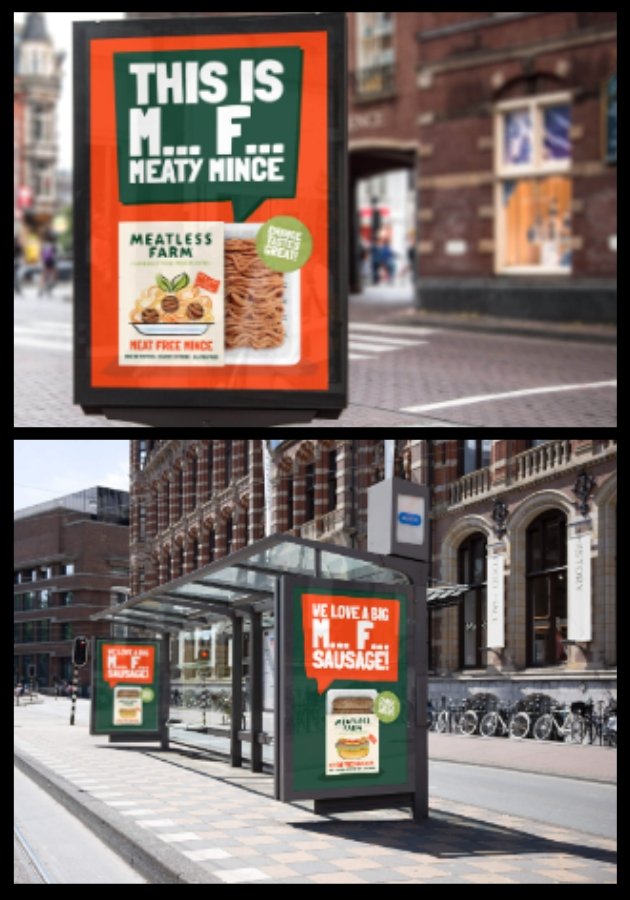Is It OK To Swear and Use Slang in Your Marketing?
And why slang and swearing are the antidote to AI
What it means to be human is most apparent when we speak to each other. Speech is loaded with nuance and delivered with inflexion. As we um, er, and gesticulate, we transform strings of words into relatable conversation.
The miracle of linguistics is that most of us learn this stuff without even trying. From our first gurgles to our final death rattle, we innately understand the subtleties and intricacies of language. When Skittles said, "Taste the rainbow", oh boy, we knew exactly what they meant.
Slang is child’s play
Humans love a little wordplay, especially slang. Slang is loaded with tribalism and neatly bonds together subsets of people, from surfer dudes to cockneys. Even some business jargon is a form of slang which opens up access to a club where you can circle back and break glass ceilings.
Swearing is grammar's crazed linguistic sidekick, packing a punch into sentences. We humans instinctively know when to let rip and when to hold back. You'll only call your boss a wankpuffin once (to their face).
How to use slang and swearing in your marketing
Across social media, slang connects brands to their target crowd. If you know your audience, the right slang and colloquialisms will assure people that you’re “one of them”. But beware. It's a dangerous game for big businesses.
Several campaigns have bombed because slang is inherently used in niche subcultures. Tesco's broad audience cringed when Tesco used 'bae' in their social media ads.
Swearing is even more tricky, but when it works, it screams confidence and rebellion. Commercial swearing is nothing new, but it takes a brave brand to sign it off. In 1997, the Australian fashion brand French Connection rebranded as FCUK.
More recently, by positioning themselves as disruptive rebels in the food industry, vegan faux meant brands have no problem using sweary witticisms. In 2020, Meatless Farm ran their playful M*** F*** campaign, and What the Cluck meat-free chicken appeared on supermarket shelves.
Talk is cheap, baby
Speaking naturally is easy, but writing in the vernacular can be godiggity tricky for non-professional writers, so it is little wonder that generative AI writing tools have been embraced with open arms. How the people cheered as ChatGPT's generative writing and language tool spewed out bazillions of words on our behalf! In the blink of an eye, generative algorithms were churning out social media posts and scripts, email newsletters, articles, and in-house comms.
Workers and marketing people punched the air. Whoop. No longer fearing grammatical errors or writer's block, they suddenly had more time to do…wait for it… even more work.
Oops. Who didn't see that one coming?
Get real, be human
But I digress. As the whooping for AI faded and party poppers settled on the carpet, reality dawned. Brands began to see the value in sounding like bona fide humans rather than relying on an algorithmic dancer who's learned the moves but ain't got no rhythm.
Businesses are also wising up to the fact that as fast AI improves by relentlessly scraping our human experiences from the internet, we learn to see through it. We can sense AI's lack of life, plus it can’t use slang or swear properly for shit.
Slang and casual language make brands relatable
Brands know they need to use the same vocabulary as their customers, but writing in the vernacular is innately complex because it is too easy to sound overly try-hard and down with the kids.
For brands that have the freedom to express themselves with personality, the antidote to AI is using topical, casual language and social references. AI just can’t tap into the genuine human experiences which connect us, and it is the reason skilled copywriters comfortable using everyday language, slang, colloquialisms, and even contextual swearwords are getting busy. Recently, I was thrilled when a client signed off on describing architectural salvage yards as "Wonkaland for designers." I guarantee that AI could not have conjured those words.
In a world awash with words, your business's personality matters
Your human-to-human words matter because people trust businesses that use relatable language to express themselves. In a frickin’ noisy online world, showing your business personality and using your unique tone of voice is more important than ever.
Your clients ain’t fools, and if AI is in charge of your content and marketing, people will sense it. The risk is that they bail on you and your bottom line gets a spanking, (and let's face it, leaving your content up to AI should be an utterly spankable offence—and not in an enjoyable way)!
What can you do?
Use AI with caution. It's your slave, and while it can check your grammar or make suggestions, it absolutely can't be trusted to connect meaningfully with your customers.
If writing is not your bag, press the orange button to hire a bangin’ writer who knows the difference between crudities and crudités.
Thank you for reading. I hope you found this blog post useful.
I’m Mel Barren from Wordy Girl Design. I’m a ghost blogger, author and website copywriter shamelessly for hire.
If you’re stuck for words, speechless or just too damn busy to write, hit the brazen orange button.




